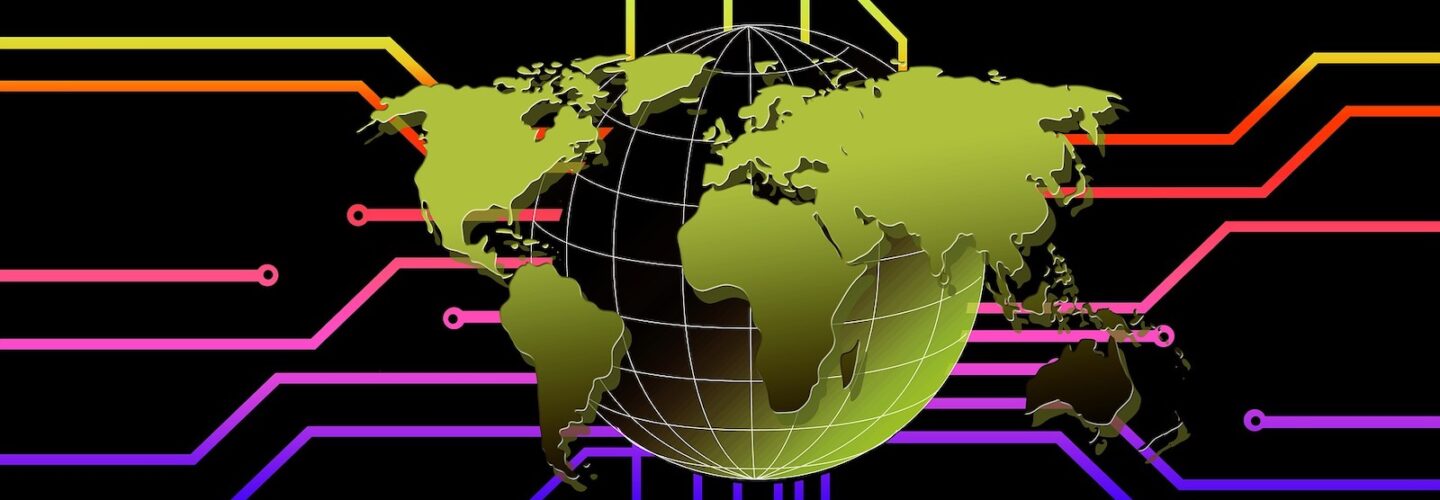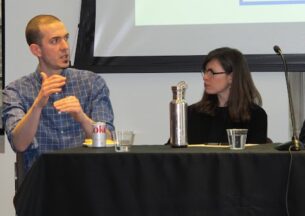UChicago Joins New Academic/Industry Consortium to Accelerate AI Innovation
A new research consortium of universities and technology companies will accelerate artificial intelligence innovation and advance its benefits for business, government, and society, its members announced today. The new C3.ai Digital Transformation Institute (C3.ai DTI) unites six research universities, including the University of Chicago, with AI software provider C3.ai and Microsoft to focus scientific efforts on new technologies and urgent applications, such as mitigating the current COVID-19 pandemic.
UChicago joins the University of Illinois at Urbana-Champaign, the University of California- Berkeley, Princeton University, the Massachusetts Institute of Technology, and Carnegie Mellon University as founding academic partners in the effort, which launches with $367 million of industry contributions over five years. The Institute’s first call for proposals focuses on using AI to abate the spread of COVID-19 and advance the knowledge, science, and technologies for mitigating the impact of future pandemics.
The institute and its initial activities were covered by the New York Times.
“By strongly supporting multidisciplinary research and multi-institution projects, the C3.ai DTI represents a new avenue to develop breakthrough scientific results with a positive impact on society at a time of great need,” said Robert J. Zimmer, president of the University of Chicago. “I’m very pleased that the University of Chicago is part of this formidable collaboration between academia and industry to lead crucial innovation with great purpose and urgency.”
“The C3.ai Digital Transformation Institute is a consortium of leading scientists, researchers, innovators, and executives from academia and industry, joining forces to accelerate the social and economic benefits of digital transformation,” said Thomas M. Siebel, CEO of C3.ai. “We have the opportunity through public-private partnership to change the course of a global pandemic. I cannot imagine a more important use of AI.”
Establishing the New Science of Digital Transformation
The Institute will focus its research on AI, machine learning, Internet of Things technologies, big data analytics, human factors, organizational behavior, ethics, and public policy. The Institute will also support the development of machine learning algorithms, data security, and cybersecurity techniques. Research will analyze new business operation models, develop methods of implementing organizational change management and privacy protection, and amplify the dialogue around the ethics of AI.
The consortium will stimulate these efforts through research grants, visiting professor and research scholar programs, curriculum development, access to software, computing and storage resources, educational programs and gatherings, and an industry partner program.
“Enabling the rapid translation of cutting-edge AI and data science research to solve problems in society, government, and business requires precisely this type of ambitious academic-industry partnership,” said Michael J. Franklin, the Liew Family Chairman of Computer Science and Senior Advisor to the Provost for Computing and Data Science at UChicago. “We’re excited to connect the University's strengths in data-driven research, AI, human-computer interaction, and our long tradition of interdisciplinary advances with this tremendously exciting effort.”
To support the Institute, C3.ai will provide $57.25 million in cash contributions over the first five years of operation. Additionally, C3.ai and Microsoft will contribute an additional $310 million in-kind, including use of computing, storage, and technical resources to support C3.ai DTI research.
AI Techniques to Mitigate Pandemic
Initial C3.ai DTI efforts will focus on utilizing AI and other computational approaches to stem the global spread of coronavirus and COVID-19. The first of their biannual calls for proposals asks scholars, developers, researchers, and innovators to submit research ideas about how machine learning, precision medicine, biomedical informatics, data analytics, computer simulation, and other tools can help develop and implement new treatments and preventive measures for the disease.
Up to $5.8 million will be awarded, and researchers are asked to submit their proposals at C3DTI.ai.
“Data has a tremendous role to play in helping scientists, policymakers, and others deal with a crisis like COVID-19,” Franklin said in a news conference announcing the Institute. “But that opportunity comes with a lot of challenges for working with data. If you look at the list of datasets made available through the DTI, there’s a tremendous diversity of data: there's journal articles, there's genomic data, there's images, there's clinical data, medical data, and so on. And just trying to take all the sources of data and integrate them into something that can be used in a meaningful way is a significant technical challenge. There are also fundamental challenges around privacy of data and ethical use of data, particularly in trying to solve public health problems. But obviously, the potential upside is huge as well. That's why we have all these great researchers and institutions collaborating on this problem.”












